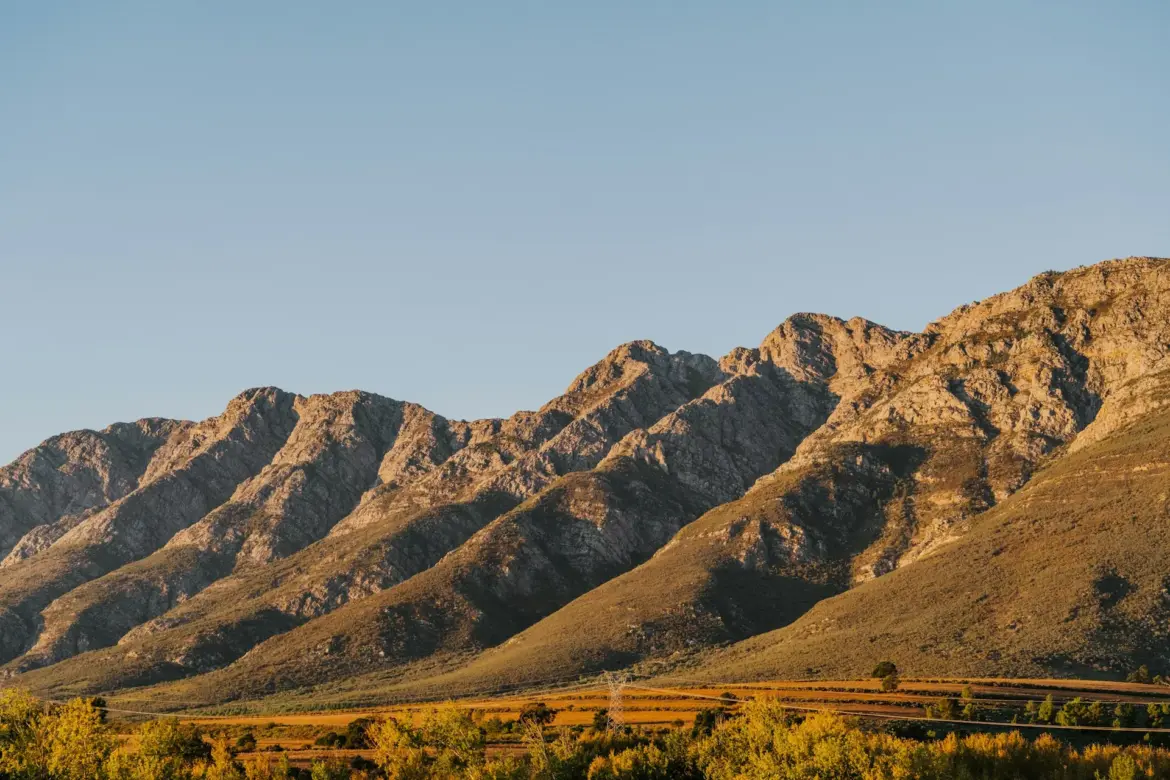South Africa is full of wine routes where the roads are quieter, the views are just as good, and the wine is even better. These hidden gems offer small-scale charm, fewer crowds, and the kind of tastings that feel personal and certainly not overrated.
Elgin Valley
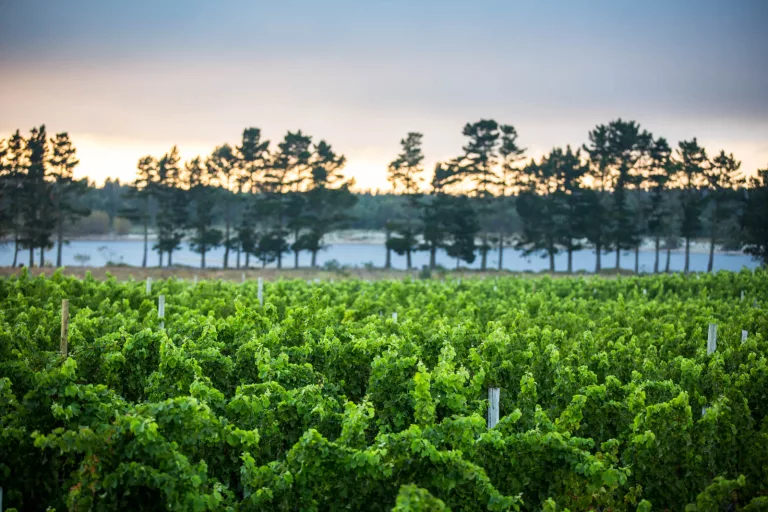
Sauvignon Blanc vineyards in the Elgin Valley/Danie Pretorius/Wikimedia Commons
Tucked into a misty basin an hour from Cape Town, Elgin is better known for apples, but its altitude and climate produce some of the country’s finest cool-climate wines. Think crisp Sauvignon Blancs, elegant Pinot Noirs, and Method Cap Classique. Stop at Paul Wallace for personal tastings in a tranquil setting, or Oak Valley for its blend of wine, gardens, and mountain biking trails. Almenkerk is another standout, with views as polished as the wines.
Robertson Wine Valley
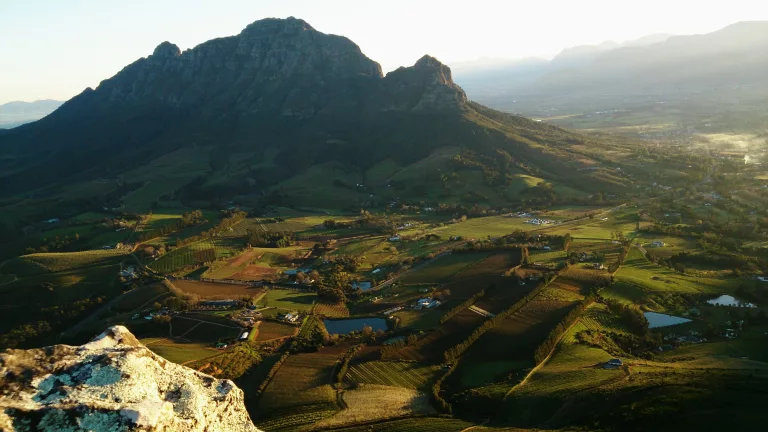
Robertson/
Lawrence W.K. Ho/Wikimedia Commons
Set against the Langeberg mountains and threaded by the Breede River, Robertson delivers a slow-paced, generous wine experience. Visit Springfield Estate for terroir-driven wines and cellar-door charm, or take a lazy boat cruise from Viljoensdrift with a picnic and bottle in hand. Kranskop and Arendsig offer smaller-scale tastings, while Zandvliet is known for its Shiraz heritage.
Tulbagh
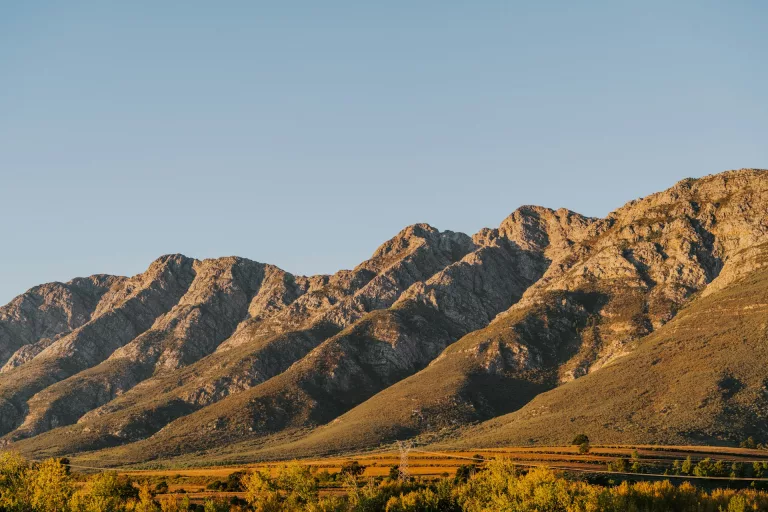
Ryan Cuerden/Unsplash
A town frozen in time, Tulbagh is home to some of the oldest Cape Dutch buildings in the country — and an exciting wine scene. Try Saronsberg for bold reds and contemporary art, or sip in the gardens of Lemberg, known for their Viognier and Pinotage. Montpellier and Theuniskraal add historical charm and easy-drinking whites.
ALSO READ: Unwind in the winelands — without going to Stellenbosch
Bot River
This pocket-sized region is big on personality. You’re likely to meet the winemaker when you stop in for a tasting. Beaumont’s 1970s cellar and signature Chenin Blanc are highlights, while Gabriëlskloof pairs excellent food and wine with views of the Overberg.
Darling
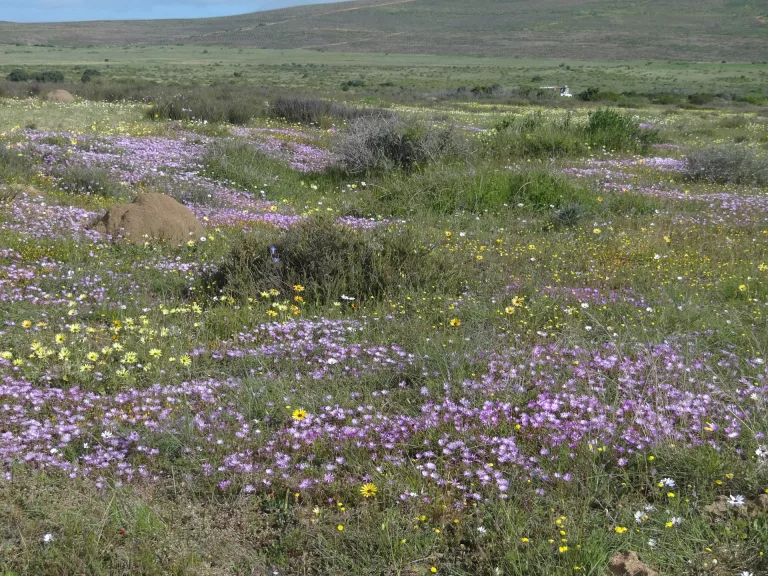
Darling/Emily Clickinson/Unsplash
Often overshadowed by its flower season fame, Darling is also a treat for wine lovers. At Ormonde Estate, leafy lawns and a peaceful tasting room make it easy to linger. Darling Cellars offers affordable wines in a rustic setting, while Groote Post (on a working farm) combines wine with game drives and picnics.
Breedekloof
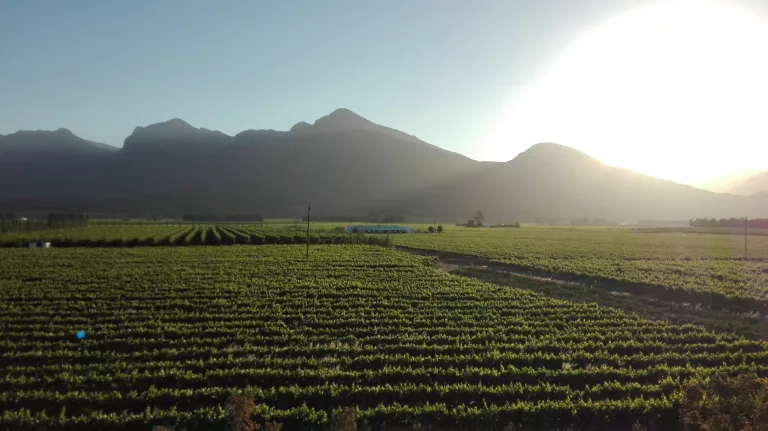
Cvzyl/Wikimedia Commons
This underrated valley near Rawsonville is rich in Chenin Blanc, from clean and crisp to wooded and complex. Opstal Estate delivers big flavours and even bigger views, with a modern restaurant perched on the slopes. Stofberg Family Vineyards and Merwida provide family-run warmth, while Slanghoek Cellar is a scenic stop for casual tasting.
Swartland
The Swartland isn’t about polished estates—it’s raw, rugged, and rebellious. Known for natural wine and minimal intervention, this region has put itself on the map with producers like AA Badenhorst and Testalonga. Visit The Wine Kollective in Riebeek-Kasteel to sample several local wines, or pop into smaller farms where tastings feel more like farm visits.
Hermanus Wine Route
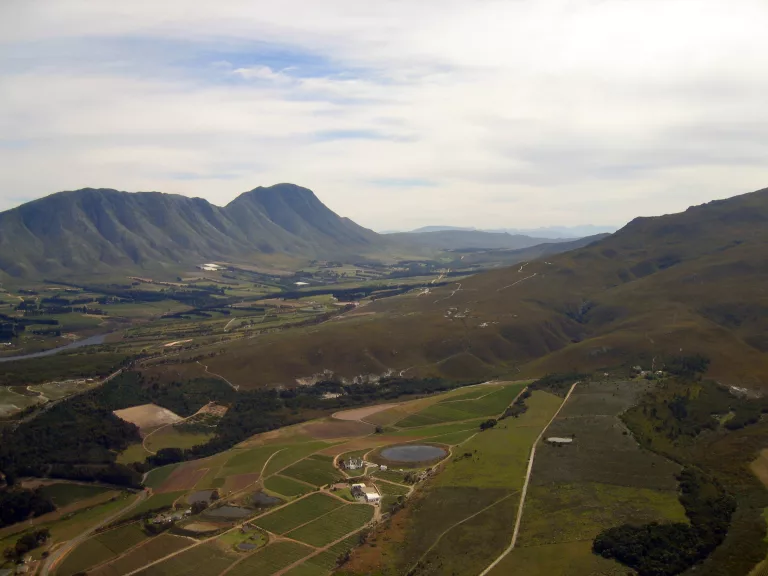
Hemel-en-aarde Valley/Amada44/Wikimedia Commons
Hemel-en-Aarde translates to “Heaven and Earth,” and it’s not just in a name. This wine route just outside Hermanus winds through fynbos-covered hills with ocean views in the distance. Chardonnay and Pinot Noir shine here, with estate stops like Creation, Hamilton Russell, and Ataraxia offering immersive food-and-wine pairings.
Olifants River
Stretching up the West Coast past Citrusdal and Clanwilliam, the Olifants River region is better known for citrus than Cabernet — but it’s one of the most peaceful places to sip. Seal Breeze and Teubes Wines are great starting points, while Lutzville Vineyards is a surprising source of full-bodied reds. It’s also a great detour en route to Namaqualand during flower season.
Follow us on social media for more travel news, inspiration, and guides. You can also tag us to be featured.
TikTok | Instagram | Facebook | Twitter
ALSO READ: Mini moons: Romantic weekend escapes in Southern Africa

